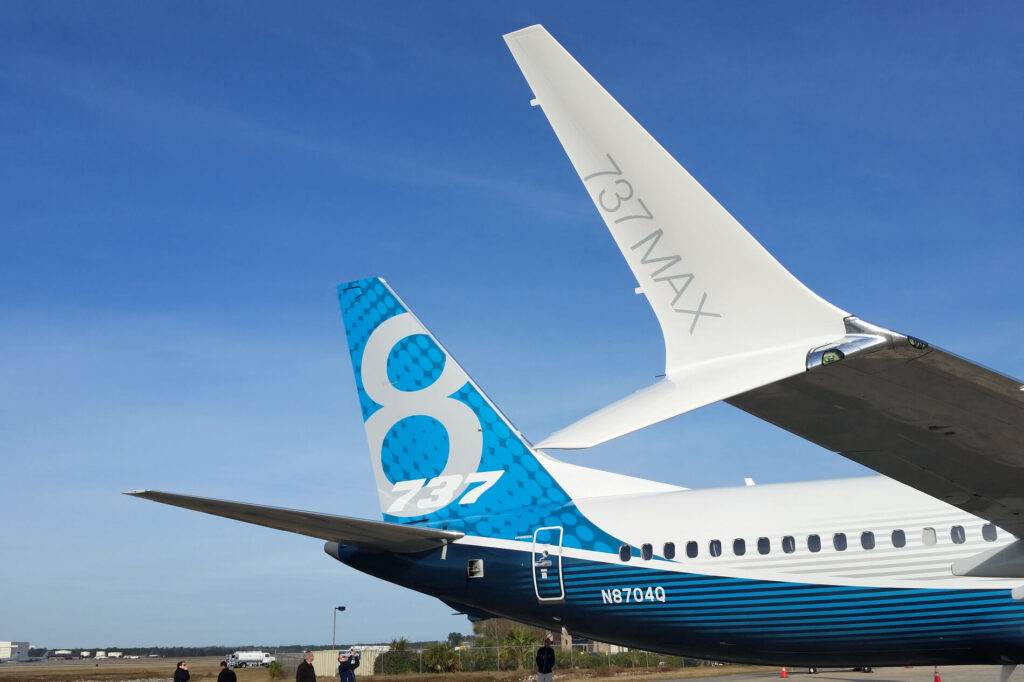A lawsuit, filed by Boeing investors in the court of Chancery of the state of Delaware, alleged that the company focused on profits, rather than safety risks, when developing the Boeing 737 MAX.
Stockholders of Boeing, including Thomas P. DiNapoli who is the Administrative Head of the New York State and Local Retirement System, and the Trustee of the New York State Common Retirement Fund brought the lawsuit on behalf of the planemaker against current and former executives. The list includes several current Boeing board members, including current Chief Executive Officer (CEO) David Calhoun and former CEO Dennis Muilenburg, first seen by the Washington Post.
“Boeing’s officers and directors did not do their jobs, and they knew it. They failed to act in good faith to assure the existence of a functioning, Board-level reporting system respecting airplane safety,” alleged the lawsuit. According to the plaintiffs, the failure to do so “resulted in hundreds of preventable deaths and massive economic damage to the Company.”
The lawsuit pointed out that “Boeing’s leaders decided to dismantle their lauded safety-engineering corporate culture in favor of what became a financial-engineering corporate culture” in the mid-1990s, which culminated when Boeing bought McDonnell Douglas in 1997. Following the acquisition, the former adopted a “cost-cutting approach to building airplanes” of the latter, read the claim.
According to the plaintiffs, the company “did not develop any tools to evaluate and monitor airplane safety until 2019,” following the two fatal crashes in Indonesia and Ethiopia. Furthermore, then-CEO Muilenburg “lobbied President Trump in an effort to prevent the Federal Aviation Administration (FAA) from grounding the 737 MAX.” The Board of Directors only received a briefing about aircraft certification and safety processes in April 2019, once the aircraft was grounded, as pointed out in the lawsuit.
“Throughout the period of the development of the 737 MAX, the Board received reports about aircraft development. The focus of these reports was on elements of profitability,” rather than safety or FAA compliance issues, claimed the complainant. Even after the Lion Air Boeing 737 MAX crashed in October 2018, during a following board meeting in December 2018, the meeting materials did not reflect “substantive discussion of product safety issues, MCAS, or the AOA sensors.” Rather, they were focused on the “state of the production recovery, focusing on the factory, supply chain, and engines” of the aircraft.
The lawsuit alleges that Boeing’s Board of Directors “consciously breached their fiduciary duties and violated their corporate responsibilities,” as they failed to assure that a reasonable information and reporting system exists. This prevented them from being informed of risks or problems that would require the board’s attention. Following the Lion Air crash, the executives “continued to consciously disregard their duty to investigate red flags and to remedy any misconduct uncovered.” After the Ethiopian Airlines Boeing 737 MAX plunged into the ground and the subsequent backlash, Boeing still paid Muilenburg, who retired from the company rather than being fired.
“As a direct and proximate result of the Director Defendants’ conscious failure to perform their fiduciary duties, Boeing has sustained significant damages both financially and to its corporate image and goodwill,” concluded the lawsuit.
The Boeing 737 MAX was grounded by civil aviation authorities across the world following the Ethiopian Airlines flight ET302 crash in March 2019. The aircraft has been slowly ungrounded across the world, as aviation authorities, including the US FAA and the European Union Aviation Safety Agency (EASA), have now allowed the type to fly passengers. Several agencies, including the Civil Aviation Administration of China (CAAC), are yet to unground the 737 MAX.

